In today’s highly specialised and complex professional landscape, the risk of errors, omissions, and professional negligence is ever-present. For professionals across various industries, the consequences of such mistakes can be financially devastating and even lead to legal repercussions. This is where professional indemnity insurance steps in to provide a safety net. In this article, we will delve into the concept of professional indemnity insurance, its coverage, and the key aspects of claims made wording.
What is Professional Indemnity Insurance?
Professional indemnity insurance, also known as professional liability insurance, is a specialised form of coverage designed to protect professionals against claims arising from acts of negligence, errors, or omissions committed during their professional duties. It provides financial protection for legal costs, defence expenses, and compensation payments that may be awarded to third parties who suffer financial loss because of the professional’s actions or advice.
Coverage under Professional Indemnity Insurance:
The coverage provided by professional indemnity insurance varies depending on the policy and the profession it covers. However, here are some common aspects typically included in professional indemnity policies:
- Professional Negligence: Professional indemnity insurance covers claims arising from professional negligence, errors, or omissions committed by the insured professional. This can include providing incorrect advice, making mistakes in contracts or reports, or breaching professional duties.
- Legal Costs and Defence Expenses: The policy covers the legal costs associated with defending a claim, including hiring lawyers, court fees, and expert witness expenses. These costs can quickly accumulate during legal proceedings.
- Compensation Payments: Professional indemnity insurance provides coverage for compensation payments that may be awarded to the claimant if the insured professional is found liable for the financial loss or damage suffered by the claimant as a result of their professional services.
- Loss of Documents: Policies often cover the costs incurred from the loss or damage of important documents entrusted to the insured professional.
- Libel and Slander: Some professional indemnity policies may also include coverage for claims arising from defamation, libel, or slander committed while providing professional services.
Claims Made Wording
Professional indemnity policies typically operate on a “claims made” basis, which means that coverage is triggered when a claim is made against the insured professional during the policy period. Understanding the key elements of claims made wording is crucial to ensuring adequate protection:
- Retroactive Date: This is the starting point from which claims arising from past acts, errors, or omissions are covered. The retroactive date is usually the inception date of the first professional indemnity policy the insured purchased continuously.
- Policy Period: The policy period refers to the duration for which the professional indemnity insurance is in effect. Claims must be made and reported to the insurer during this period to be eligible for coverage.
- Extended Reporting Periods (ERP): Sometimes referred to as “tail coverage,” an ERP is an optional extension available for purchase that provides coverage for claims made after the policy period expires but arising from incidents that occurred during the policy period.
- Notice of Circumstance: It is crucial for the insured professional to notify the insurer of any circumstances that may give rise to a claim during the policy period, even if a claim has not yet been made. This allows for potential coverage of future claims related to the identified circumstance.
Conclusion
Professional indemnity insurance plays a vital role in protecting professionals from the financial risks associated with errors, omissions, and professional negligence. By understanding the coverage provided and the nuances of the claims made wording, professionals can ensure they have safeguards in place. It is advisable to consult with insurance professionals and carefully review policy terms to get the most suitable coverage for one’s professional needs.

